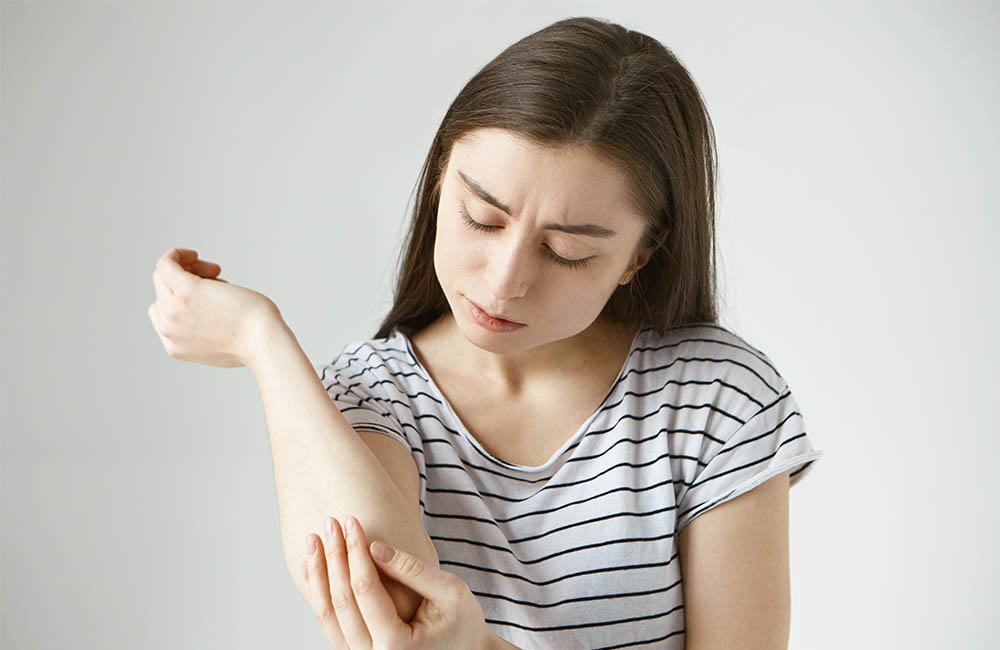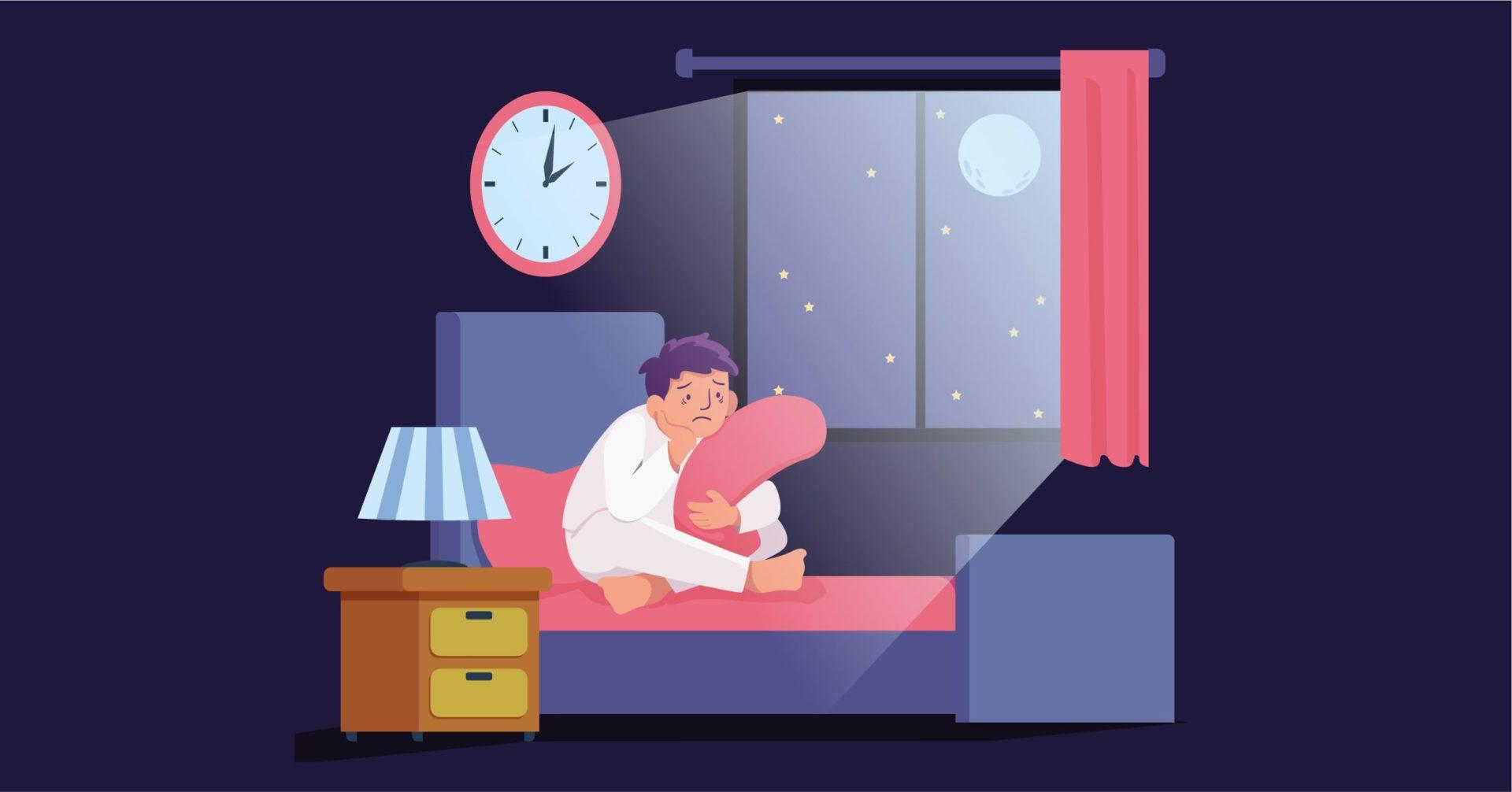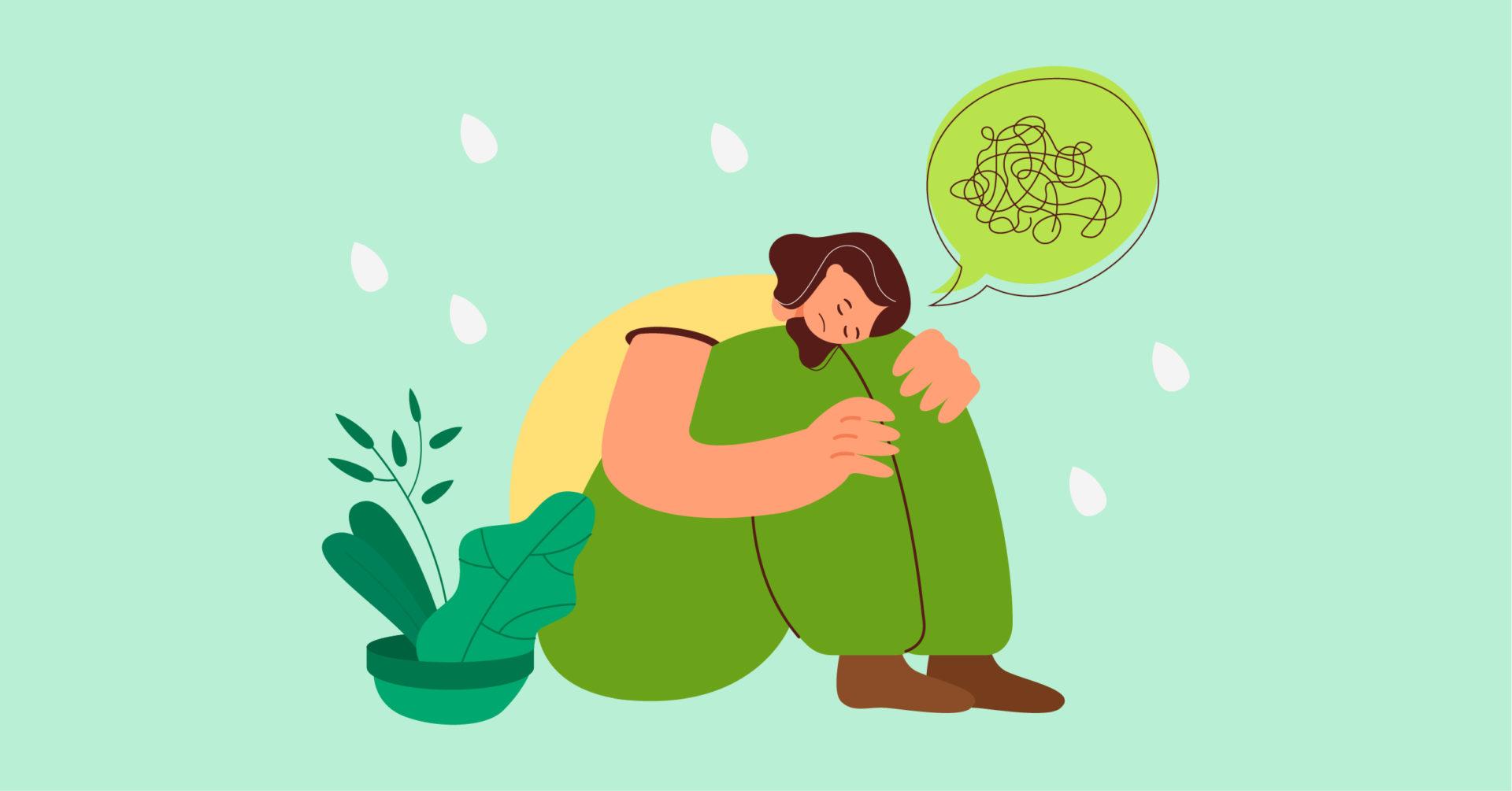What is Excoriation Disorder?
Excoriation disorder involves picking at the surface of the skin, and is known by many other names including dermatillomania, neurotic excoriation, psychogenic excoriation, and skin picking disorder.
The disorder presents with a persistent pattern of skin picking leading to lesions and open wounds in the skin, and can lead to significant distress that can disrupt the functionality of the individual.
The onset of the disorder is typically in adolescence, but it can affect people of all ages. A female predominance is observed among those who seek treatment for the disorder, but the overall gender distribution is even.
Treatment routes include both psychotherapy and pharmacological intervention. Pharmacology is highly dependent on each patient’s individualistic symptoms, as there is no established medication for the disorder.
Signs and Symptoms of Excoriation Disorder
The signs and symptoms of excoriation include:
- Repetitive picking at the skin
- Wounds and scars caused by constant skin picking
- Being unable to stop picking at skin even if willing/wanting to
- Distress, shame, embarrassment, anxiety, or depressive feelings due to skin picking
Risk Factors for Excoriation Disorder
The course of excoriation disorder is usually chronic and persistent, with the onset characteristically occurring during adolescence, and typically coincides with the onset of puberty. There is a significant female preponderance in the prevalence of the patients who seek treatment for the disorder, but a less significant difference was reported in the occurrence of the disorder.
Excoriation often occurs along with underlying disorders, including Obsessive-Compulsive Disorder, Body Dysmorphic Disorder, anxiety disorders, mood disorders, eating disorders, personality disorders, and substance use disorders.
Comorbid disorders are also associated with the severity of Excoriation, usually exacerbating its intensity. Dermatological conditions, such as eczema, may also be responsible for the onset of the disorder.
Environmental factors can often trigger skin picking, and depend on the individual. These factors can include stress and anxiety, and also boredom or tiredness.
Diagnosis of Excoriation Disorder
The diagnosis of Excoriation is based on thorough clinical evaluations. It is most likely for individuals with the disorder to present to dermatologists, and thus the onus of recognizing possible signs and following up with appropriate questioning lies with them as primary healthcare providers.
Upon referral, a clinical psychologist or psychiatrist may confirm the diagnosis based on assessment scales such as clinician-rated or self-report scales and self-monitoring questionnaires, and diagnostic criteria.
The diagnostic criteria outlined in the DSM-5 highlight the following:
- Recurrent skin picking that causes skin lesions
- Repeated attempts to stop or reduce skin picking
- Significant distress or impairment in daily life resulting from skin picking
The skin picking is not attributable to the effects of a substance or other medical conditions, or to other mental disorders.
It is also important during clinical evaluation for the clinician to assess the style of skin picking behavior in order to determine an effective treatment route. Through a self-report measure, “automatic” behavior, described as more habitual, less conscious, and occurring in inactive situations, and “focused” behavior, described to be more conscious and targeting uncomfortable sensations or feelings, can be determined.
These two styles, however, are not independent of each other, and patients may present with a mixture of them both. Factors on the assessment scale can help determine the nuances of the style of behavior.
Treatment
Treatment for Excoriation is often dependent on severity. Individuals with mild cases of Excoriation may never present themselves in clinical settings, and there is also a possibility of the behavior being attributed to “bad habits” or the feelings of embarrassment or anxiety holding the individual back from seeking care.
Management of the disorder is multimodal, and treatment can include behavioral therapy and pharmacology.
Cognitive Behavioral Therapy in the form of psychoeducation and habit reversal works by increasing the patient’s awareness and replacing the skin-picking behavior with actions that inhibit the ability to perform it, such as clenching the fist.
Acceptance and Commitment Therapy is another effective form of CBT revolving around the acceptance of negative thoughts as naturally occurring as a part of life, and coming up with ways to deal with them that align with the individual’s personal values, thereby replacing the skin picking behavior.
Evidence of pharmacological outcomes is scarce in the context of Excoriation, and there is no established medication for the disorder. N-acetylcysteine (NAC) have proved effective in those with higher awareness, and SSRIs (antidepressants), antipsychotics, opioid antagonists, and other miscellaneous medication may be used on the basis of individual case profiles.
Differential Diagnosis
1. Psychotic disorder: Skin picking may occur in response to a delusion (i.e., parasitosis) or tactile hallucination in a psychotic disorder. In such cases, excoriation disorder should not be diagnosed.
2. Other obsessive-compulsive and related disorders: Excessive washing compulsions in response to contamination obsessions in individuals with OCD may lead to skin damage and skin picking may occur in individuals with body dysmorphic disorder who pick their skin solely because of appearance concerns; in such cases, excoriation disorder should not be diagnosed.
3. Neurodevelopmental disorders: While tics in individuals with Tourette’s disorder may lead to self injury, the behavior is not tic-like in excoriation disorder. Also, stereotypic movement disorder may be characterized by repetitive self-injurious behavior, onset is in the early developmental period.
4. Somatic symptoms and related disorders: Excoriation disorder is not diagnosed if the skin lesion is primarily attributable to deceptive behaviors in factitious disorder.
5. Other disorders: Excoriation disorder is not diagnosed if the skin picking is primarily done to harm oneself that is characteristic of nonsuicidal self-injury.
6. Substance/medication-induced disorders: Skin-picking symptoms may also be induced by certain substances (e.g., cocaine), in which case excoriation disorder should not be diagnosed. If such skin picking is clinically significant, then a diagnosis of substance/medication-induced obsessive-compulsive and related disorder should be considered.
7. Other medical conditions: Excoriation disorder is not diagnosed if the skin picking is primarily attributable to another medical condition. For example, scabies is a dermatological condition invariably associated with severe itching and scratching. However, excoriation disorder may be precipitated or exacerbated by an underlying dermatological condition. For example, acne may lead to some scratching and picking, which may also be associated with comorbid excoriation disorder.
Comorbidity
Excoriation disorder is often accompanied by other mental disorders such as OCD, trichotillomania, major depressive disorder. Repetitive body-focused symptoms other than skin picking and hair pulling (e.g., nail biting) occur in many individuals with excoriation disorder and may deserve an additional diagnosis of other specified obsessive-compulsive and related disorder.
Specialist
Individuals who seek treatment are likely to consult primary physicians or dermatologists and not psychiatrists for first-line treatment. Clinical psychologists or psychiatrists may be referred by the primary healthcare provider.
In Conclusion
People who have this disease frequently try to cover up their apparent injuries with clothing, makeup, or other methods because they feel ashamed or embarrassed about them. Because of this, this disease may contribute to social isolation, despair, or anxiety. It may also have an impact on a person’s social or professional life.
People suffering from Excoriation are more prone to have additional psychological or physical disorders. A few of these are OCD or other OCD-related conditions like trichotillomania (hair-pulling disorder) or nail-biting(onychophagia) e, depression anxiety conditions. It is important to consult a therapist before the severity of the symptoms increases.
Book a session with our experts today.





